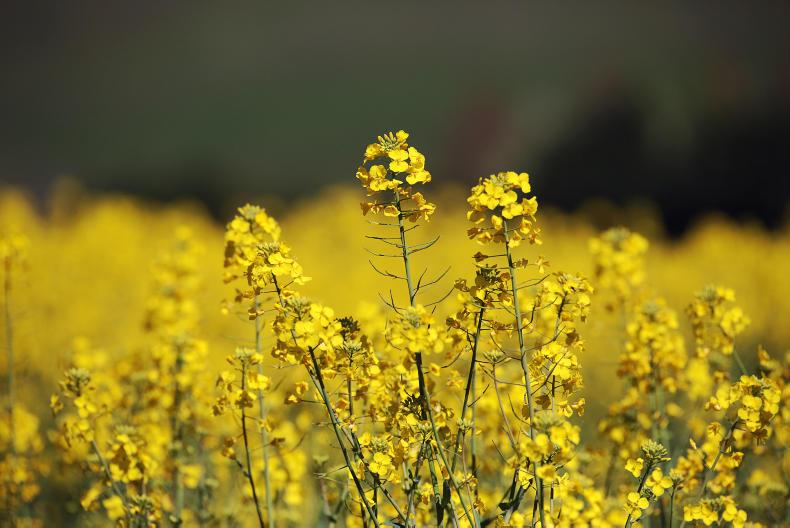European institutions are at odds over the role ethanol and biodiesel should play under the EU’s second Renewable Energy Directive.
The European Commission initially proposed to increase the overall renewable energy target to 27% by 2030 from the current 20% by 2020. Meanwhile, the eligible contribution of these first-generation biofuels in transport would be cut from 7% to 3.8% over fears that the crops used to make them would compete with food production.
This Monday, the environment committee of the European Parliament went further and voted to increase the 2030 renewable target to 35%, with no crop-based biofuels eligible at all.
Speaking before the Oireachtas Agriculture Committee this Monday, Kevin Brady of the heat and transport division of the Department of Communications, Climate Action and Environment said that the Council of EU energy ministers was discussing a proposal to retain the 7% eligibility. “This is something Minister Naughten would be supporting at the European Council,” he said.
1% of Ireland’s current transport energy needs
Brady added that first-generation biofuels currently covered only 1% of Ireland’s transport energy needs and were virtually all imported. Proposed limitations to their use would therefore not directly affect Irish tillage farmers.
At the European level, however, industry bodies including the umbrella farming organisation Copa-Cogeca have opposed the proposed change in policy. They argue that crop-based biofuels are saving Europe €30bn in fossil fuel imports each year and offering a profitable outlet for by-products of the livestock feed industry.
The ICSA has been supporting the campaign to retain support for these fuels because distillers’ grains from European ethanol plants are a significant ingredient in dairy and beef rations in Ireland.
Irish biorefinery in Hungary
James Cogan, policy director of Irish-owned company Ethanol Europe Renewables, told the Oireachtas committee that legislation should continue to support the use of first-generation biofuels while alternatives are being developed because they rely on an established set of technologies and investors. He added that the refinery operated by his company in Hungary has created 2,000 jobs and produces feed, biofuels and other commodities from the crops it buys.
Jack Nolan, senior inspector at the Department of Agriculture, told the Oireachtas committee that crop-based biofuels did not constitute an attractive prospect for Irish tillage farmers. “Given the cost of production here, grain is better to go into higher-value products than something like this,” he said.
The proposed cut to European support would not affect other sources of renewable energy, such as solar, wind, biomass and biogas, nor second-generation biofuels such as biodiesel made from used cooking oil or tallow – all of which are regarded as promising industries in Ireland.
Read more
Full coverage: renewable energy
European institutions are at odds over the role ethanol and biodiesel should play under the EU’s second Renewable Energy Directive.
The European Commission initially proposed to increase the overall renewable energy target to 27% by 2030 from the current 20% by 2020. Meanwhile, the eligible contribution of these first-generation biofuels in transport would be cut from 7% to 3.8% over fears that the crops used to make them would compete with food production.
This Monday, the environment committee of the European Parliament went further and voted to increase the 2030 renewable target to 35%, with no crop-based biofuels eligible at all.
Speaking before the Oireachtas Agriculture Committee this Monday, Kevin Brady of the heat and transport division of the Department of Communications, Climate Action and Environment said that the Council of EU energy ministers was discussing a proposal to retain the 7% eligibility. “This is something Minister Naughten would be supporting at the European Council,” he said.
1% of Ireland’s current transport energy needs
Brady added that first-generation biofuels currently covered only 1% of Ireland’s transport energy needs and were virtually all imported. Proposed limitations to their use would therefore not directly affect Irish tillage farmers.
At the European level, however, industry bodies including the umbrella farming organisation Copa-Cogeca have opposed the proposed change in policy. They argue that crop-based biofuels are saving Europe €30bn in fossil fuel imports each year and offering a profitable outlet for by-products of the livestock feed industry.
The ICSA has been supporting the campaign to retain support for these fuels because distillers’ grains from European ethanol plants are a significant ingredient in dairy and beef rations in Ireland.
Irish biorefinery in Hungary
James Cogan, policy director of Irish-owned company Ethanol Europe Renewables, told the Oireachtas committee that legislation should continue to support the use of first-generation biofuels while alternatives are being developed because they rely on an established set of technologies and investors. He added that the refinery operated by his company in Hungary has created 2,000 jobs and produces feed, biofuels and other commodities from the crops it buys.
Jack Nolan, senior inspector at the Department of Agriculture, told the Oireachtas committee that crop-based biofuels did not constitute an attractive prospect for Irish tillage farmers. “Given the cost of production here, grain is better to go into higher-value products than something like this,” he said.
The proposed cut to European support would not affect other sources of renewable energy, such as solar, wind, biomass and biogas, nor second-generation biofuels such as biodiesel made from used cooking oil or tallow – all of which are regarded as promising industries in Ireland.
Read more
Full coverage: renewable energy






 This is a subscriber-only article
This is a subscriber-only article










SHARING OPTIONS: